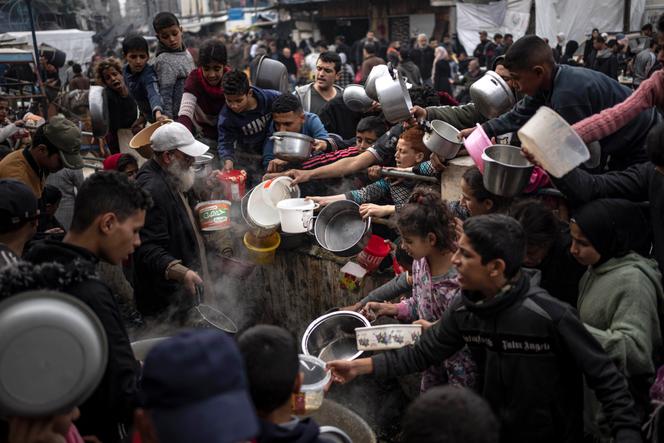


At the end of September, Steve Sosebee, founder and president of the Palestine Children's Relief Fund, received a thank-you email from Gaza. The medicines and solar energy system sent by his organization had improved the life of Yaser Al-Maqadma's son, Khalil, who had cerebral palsy. On December 15, the father sent another message to Sosebee. "My soul, my little one, Khalil, is dead. He has left us. He was hungry," he wrote.
The father had been looking for the food supplements his son needed, but they were no longer available in the Gaza Strip, which has been under Israeli siege for almost two and a half months. "I found some, but not enough. It was too late," he concluded. Sosebee is still in contact with the family, who have been living in Khan Yunis, in the south of the enclave, for several weeks, after fleeing Gaza City as ordered by the Israeli army.
For weeks, international organizations have been sounding the alarm, using increasingly sinister superlatives to describe the humanitarian disaster in Gaza, in the hope that Israel will loosen its grip. Today, hunger is striking the enclave. At present, 93% of Gazans are in "acute food insecurity," according to the latest report from the World Food Program (WFP) published on Thursday, December 21.
Around half the population is expected to be in the "emergency" phase – very high levels of acute malnutrition and excess mortality – by February 7. And "at least one in four households," that is, more than half a million people, will be facing "phase five," that is, "catastrophe," or an "extreme lack of food," which can lead to a famine classification.
Adel Kaddum, head of the Secours Islamique France office in Gaza, is now safe in Egypt. The 61-year-old Palestinian left the enclave on December 7, thanks to his American passport. On the day he left, a 25-kilo bag of rice was selling for 500 shekels (€126), 10 times more than before the war. He and his wife fasted so that their children would have enough to eat and drink. "We were five adults and my three children, but we only had six liters of water a day for all of us," he explained. "To survive, at the end, when we could no longer find flour and rice, we only ate zaatar," a mixture of oregano, sumac, sesame and salt.
In the enclave, subject to Israeli strikes, finding something to eat or drink takes up a large part of the inhabitants' time and can lead them to risk their lives. "Going out on the street, you expose yourself to the risk of being targeted by snipers and tanks or being crushed by bombings," said Kaddum. "Once, I went out to buy some food. I turned back when I saw how many buildings had been destroyed. I was terrified." In front of the few bakeries still in business, the queues stretch for several hundred meters, he said.
You have 70% of this article left to read. The rest is for subscribers only.
